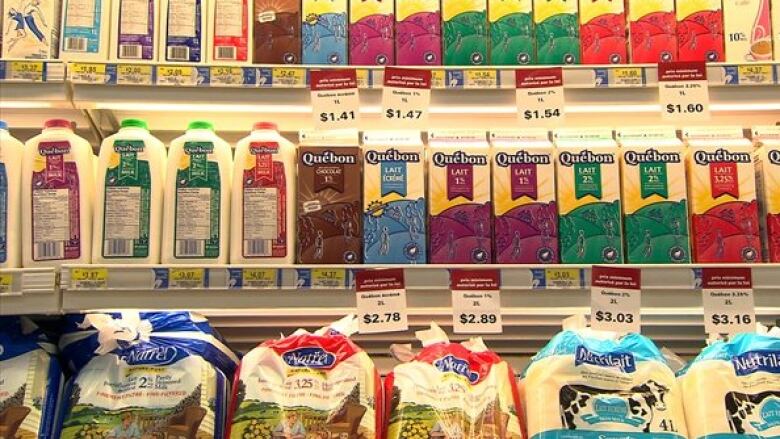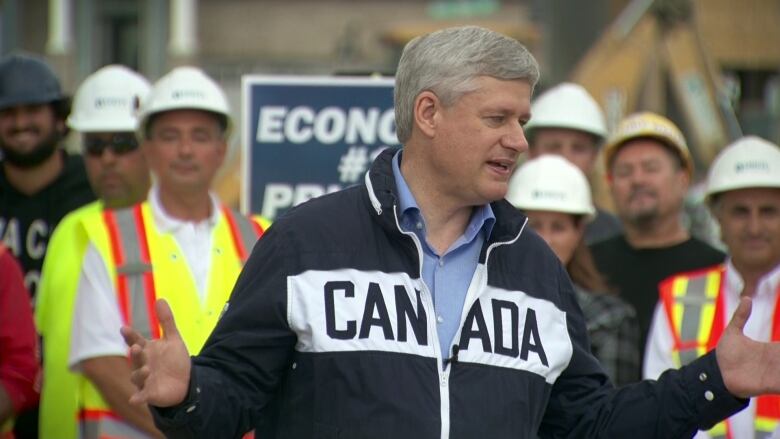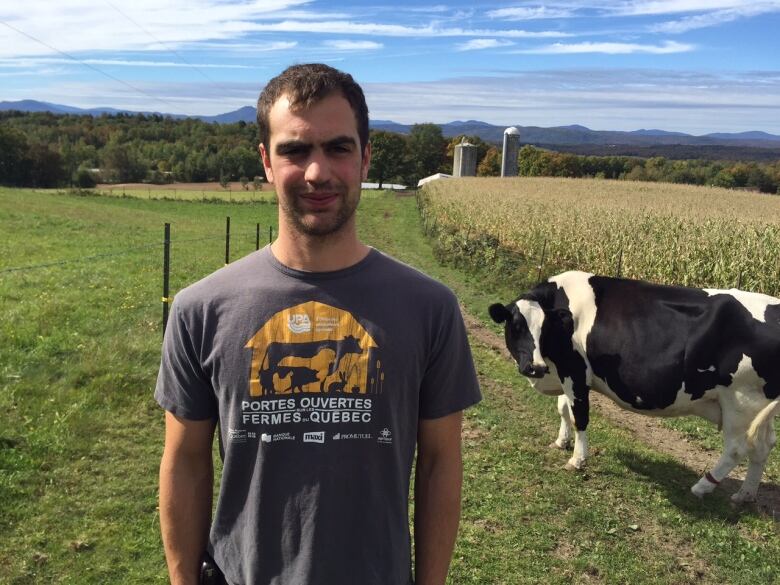Trans-Pacific Partnership: What it could mean for Quebec and you
Deal nudges province's powerful dairy industry toward greater international trade

Canada has signed on tothe Trans-Pacific Partnership, a massive new 12-country trading blockwith implications for hundreds of millions of people, hundreds of products and industries, and for long-term relationships between countries on four continents.
- TPP deal 'in best interests' of Canadian economy, Stephen Harper says
- TPP trade agreement reached but contentious as ever
The full details of the tentative agreement, which must be ratified by each country,haven't been made for public.
Here's what we know andwhat it could meanfor bothQuebec industries and consumers.
Lower grocery prices? Harper says so
Conservative Leader Stephen Harper says the deal will lead to lower grocery bills as new products become available from overseas.
One of the benefits to Canadians, it was implied, was that savings wouldbe passed down straight to consumers and their wallets. But, experts say,it's unlikely the deal with make a big dent in Canadians' grocery bills or car purchases.
"Don't expect to see huge changes or a huge drop in prices," saidAmbarishChandra, a pricing expert who teaches at the University of Toronto's management school. "Really, there's very little evidence that'sgoing tohappen."

The province's dairy industryis regulated with minimum retail prices that are higher than elsewhere in Canada and the United States.
Sylvain Charlebois, a professor of distribution and food policy at the University of Guelph's Food Institute, saidthere's a chance that retail prices could fall mainly outside Quebec.
"When you look at prices dropping at farm gate, usually consumers do win over the longterm; that's what we've seen over the last five to 10 years,"he said.
"There are no guarantees, but you actually do increase that possibility."
New markets (and competition)
Quebec's exports of industrial goods to TPP countries were worth an annual average of $38.9 billionbetween 2012 and 2014.
According to the federal government,the dealwill "significantly improve market access opportunities for Quebec's industrial goods sector, including metals and minerals, chemicals and plastics, and vehicle parts."
In particular, it will give theQuebec aerospace industry, which represents more than 40,000 jobs in the province, access to roughly "half of the world's air traffic growth over the next two decades being driven by the Asia-Pacific region."
Challenges toprovince'sdairy industry
Quebec accounts for abouthalf of Canada's dairy farms, and the industry was concerned the deal would open as much as10 per cent of the country's dairy market to imports.

The federal government reportedlyapproved a$4.3-billion compensation fund to be paid to farmers and processors over the first 15 years of this agreement.
- Trans-Pacific Partnership cause for relief, says Quebec dairy farmer
- Quebec dairy farmers panicked over Trans-Pacific deal
BenotSimard, who runs a dairy farm inStanstead, Que., said he's concerned about the potential new market.
"At first sight, it's not good news because it's 3.25 per cent [in lost demand]," told CBC Montreal's Daybreak.
"A lot of farms don't have much more profit than this, so it will be a good chunk to take on."
Marcel Groleau, president of a union representing 42,000 Quebec farmers, said the TPP deal coupled with the recently reached agreement with the European Union means the country's milk sector will have to open a "very important" extra five per cent to foreign competition.
Couillardgovernment praises deal
JacquesDaoust,Quebec's minister of the economy, innovation and exports, welcomed the new deal, saying it would give theprovincethe Trans-Pacific Trade Pact, saying it gives theprovince access to a market of 800 million consumers.
DaoustadmittedQuebechad no choice but adds that a number of sectors will benefit fromthe deal.
"Theaerospace, manufacturing and mining sectors have a net gain on this. Why because all those barriers to the 11 other markets will be down in five to 10 years from now." Daoust said.
"In the food business, part of it is a clear winner."
QuebecAgriculture Minister PierreParadissaid the pact won't be easy on the province's milk producers. He also said the playing field is not level.
"The Canadian health department forbids a milk producer in Quebec to use growth hormones on its cows," he said.
"It's allowed in the United States. If you refuse it for health reasons in Canada, it's hard to explain why you should let that producer come in."
Bloc Qubcois Leader Gilles Duceppe, meanwhile, said he was "disappointed" with the agreement.
with files from Canadian Press












_(720p).jpg)


 OFFICIAL HD MUSIC VIDEO.jpg)
.jpg)



























































































